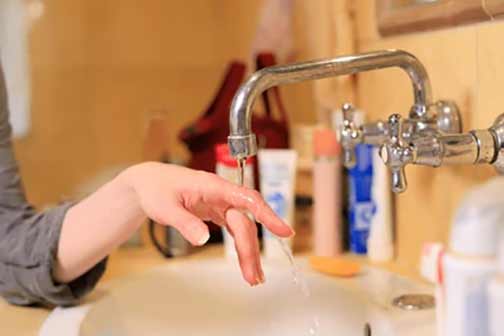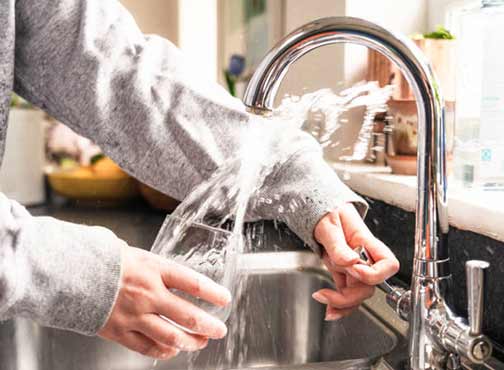
Water pressure issues in your home can be maddening, whether the particular problem is low or high water pressure. According to PMI Prime Property, high water pressure can damage your appliances and break your plumbing, while low water pressure diminishes the performance and enjoyment of your plumbing.
What are the causes of water pressure issues in your Chicago home, and how can you fix them?
Causes and fixes of low water pressure
Faucet aerators are clogged
The first thing to do if you notice a sudden drop in water pressure from a faucet, especially if there is an irregular spray pattern, is to check if the faucet aerator is blocked. Faucet aerators are little strainers found at the tip of most faucets.
They spread the flow of water from the faucet into a spray of tiny droplets, instead of a large stream. This improves the efficiency of your faucet and also saves water. However, aerators can be blocked by small particles in your water supply.
To fix this, unscrew the faucet and disassemble the aerator. Clean the aerator screen with water and a brush. If there are hard deposits in it, soak it in a water and vinegar mix for a few hours. Rinse it with water, reassemble the aerator, and reattach the faucet.
Valves are partially opened
If one of the valves controlling the water supply to your home is slightly closed, it will restrict the flow of water into the plumbing, causing low water pressure in your home. This typically happens at the main water shutoff valve or the water meter valve.
To open these valves, carefully turn them in a counterclockwise direction. If you are working with an old valve, you may encounter some stiffness. This is normal with old gate valves, which have been in place for a long time and are rarely turned.
If a valve is firmly stuck or you think there is a risk that it may break, it is better to replace it with a ball valve. They are more reliable and don’t get stuck so easily.
There are mineral deposits inside your pipes
This is a common problem in galvanized steel pipes, especially if the pipes are installed in an area with hard water, like Chicago. Calcium and magnesium particles have an affinity for galvanized steel pipes. So the rate of buildup in these pipes is higher than in other pipe materials.
By narrowing pipe channels and restricting water flow, sediment buildup in the water pipe can cause low water pressure in your home. This is a serious problem because some of those particles can enter your appliances, causing major issues.
The best solution for the problem is to replace your blocked pipes with piping that is less likely to clog. Installing a whole-house water purifier can also protect your home from the effects of sediment buildup from hard water.
There is a hidden leak
Pipe leaks can cause low water pressure in your home because they let water leak out of the system. This type of leak occurs in the hidden parts of your home or inaccessible sections of the plumbing.
To know if your low-pressure problems are caused by hidden leaks, you need to check for hidden leaks in your plumbing. Hidden leaks are often accompanied by sudden spikes in your water bill. If you have low water pressure and high water bills, you probably have a hidden water leak.
Municipal water pressure is low
Water pressure issues that affect your home as well as your neighbors’ homes are often caused by problems in the municipal water supply. For cities like Chicago with century-old infrastructure, low water pressure is a common problem. The only way to solve it is to install a booster pump in your home.

Causes and fixes of high water pressure
A faulty pressure regulator
The pressure regulator on your main water valve helps to maintain a consistent water pressure inside your home. If water pressure is too high, the device may have malfunctioned. The only option here is to get your plumber to install a new pressure regulator or adjust the setting of the existing one.
Expanding hot water
Expanding hot water can increase the pressure inside your pipes, leading to excessive water pressure in your home. If this problem is not fixed, it will damage your appliances. Check if the expansion tank on your water heater is working properly. If it is not, you may need a new one.
High water pressure from the municipal supply
Sometimes the local water company will set the water pressure too high to ensure that every home and office, including those in high-rise buildings, gets enough water. This may have the unintended effect of causing high water pressure in your home. You can counter this effect by installing a pressure regulator.
Water pressure problems can result from diverse issues in your home. If you are unable to pinpoint the exact cause of the problem from this list, it may be time to have a local Chicago plumber do a proper inspection of your plumbing to diagnose the root cause of the issue.

